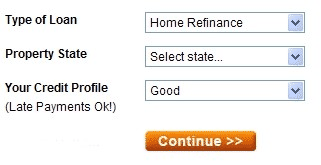Reverse Mortgage Basics
As the name implies the payments on a reverse mortgage flow in reverse…not from the borrower to the lender but from the lender to the borrower. A reverse mortgage affords older homeowners (62+) that are “house rich” and “cash poor” to receive their equity a little each month.
Many older home owners in this situation are often required to sell their family home or take out loans that require monthly payment they can’t afford just to tap the equity for living expenses. The reverse mortgage is a great way to stay in their home, avoid increasing their monthly obligations, and actually receive monthly tax free income.
The Home Equity Conversion Mortgage (HECM) is the most popular reverse mortgage product. And even though there are other programs, this is only one I recommend. When it comes to getting a monthly check, you need a program backed by the government. HECMs are a Federal Housing Administration (FHA) loan program insured by the Federal government.
The amount of equity you can tap depends on a borrowers age, current amount of equity (determined by subtracting the current loan balance from the current appraised value), and current interest rates. Those borrowers who have a big equity position and are closer to 82 than 62 will qualify for the most funds.
There are FHA loan limits on reverse mortgages just like on their regular loan programs. So the max amount can be curtailed by the loan limits set for your locale.
The other reason I only recommend the FHA reverse mortgage is the limit they place on originator income: not more than 2%. This means less of a chance for bank or broker tricks.
One drawback on the reverse mortgage: Your home with the reverse mortgage must be your residence.
If you get ill and need to move out of your home into an assisted living facility they can and will call the loan due. The payments will stop and the total you’ve received plus interest will be due and payable. Most borrowers would be forced to sell the home to pay off the loan. That could be problematic and costly.
Reverse mortgages must be evaluated along with tax and estate planning issues before decisions are made about their suitability. Consult your tax advisers before closing on a reverse mortgage.
Previous Post:« Pick A Payment Mortgage - Understanding The Stupidity
Next Post:» 40 Year Mortgage Pitfalls
Tags: Home Mortgages • Loan Programs • Mortgage Advice • Refinancing Tips • Reverse Mortgages


Leave a Reply